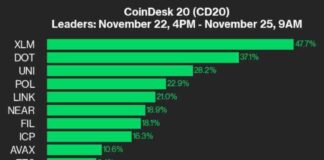As experienced national security experts, we have witnessed the evolution of technology and its impact on security measures. Our combined expertise from various U.S. government agencies such as the FBI, CIA, U.S. Secret Service, and Departments of Justice and Treasury has provided us with unique insights into the potential benefits of blockchain technology for national security.
Blockchain technology, at its core, is a cryptographic tool that can be utilized in various ways. While there are concerns about its potential misuse for illicit activities, we believe that a focused policy approach is necessary to harness its capabilities for strengthening national security. The United States has a long history of embracing new technologies to gain a strategic edge, and blockchain is no exception.
One key aspect of leveraging blockchain technology for national security is the development of a robust regulatory framework that supports innovation while mitigating risks. By creating an environment that encourages the growth of blockchain and digital assets onshore, policymakers can unlock the potential for these technologies to be used as tools of strength and democratization. This proactive approach can help shift the narrative that associates blockchain solely with criminal activities.
Moreover, the adoption of blockchain technology can enhance the transparency and traceability of financial transactions, which is crucial for monitoring international trade requirements, enforcing sanctions, and combating illicit financial activities. The immutable nature of blockchain records enables investigators and intelligence agencies to track assets and disrupt criminal networks more effectively than traditional financial systems.
Contrary to popular belief, blockchain transactions are not entirely anonymous. While they may be pseudonymous, the public ledger system allows for the analysis of transaction patterns to identify individuals or entities involved in illicit activities. This transparency provides law enforcement with valuable tools for tracking and tracing assets across networks, leading to more effective measures against financial crimes.
Additionally, digital assets offer advantages over cash when it comes to freezing or seizing assets associated with illegal activities. Law enforcement agencies have successfully blocked or frozen billions of dollars’ worth of cryptocurrency linked to thefts and money laundering, highlighting the potential of digital assets in supporting legal processes.
It is imperative for the U.S. to stay ahead of the curve in technological advancements to safeguard national security interests. By establishing clear regulatory frameworks and market structures for blockchain and digital assets, policymakers can pave the way for a secure and prosperous future for the country. Collaborative efforts in this area will not only protect citizens and the economy but also position the U.S. as a leader in the global digital landscape for years to come.














